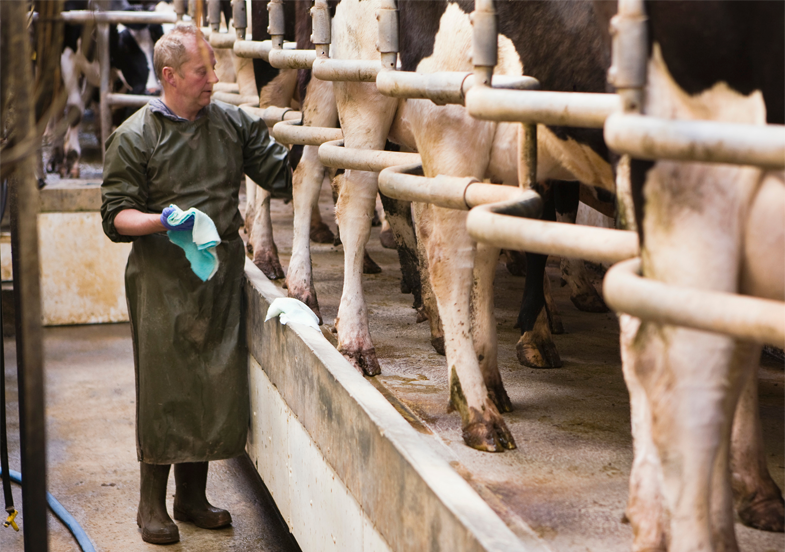By Sue Bryan
Let’s take a minute to think about the vital components of a dairy farm. What comes to mind? Livestock? Machinery? Crops? Soil? Without these elements, the farm would be incomplete. But there is one resource of virtually limitless potential lying fallow on farm. A resource that wouldn’t always be first to come to mind. Your employees – they are critical to the success of any business and future growth.
With our own FBA data clearly revealing a two-fold difference in employee productivity between our top quartile farms and those in the bottom 25%, it is a no brainer that it deserves equal management attention. After all, the ability to attract and retain good staff is key to unlocking the potential of investment in facilities and livestock.
Recruiting the right people
It all starts with attracting suitable staff. Yes, this can be tricky – agriculture, particularly the dairy sector, has for some time had a real problem with finding staff who are suitable for the job. But, does it have to be this way? Look at our current situation, the unemployment rate in the UK between May and July was 4.1%. Facing the current Covid-19 situation, this figure is likely to increase even further.
The latest ONS Vacancy Survey highlights the catastrophic effect the pandemic continues to have on employment. Vacancies are significantly lower in a number of sectors, with a 70% decrease in hospitality, 60% decrease in retail, and a 50% decrease in total services.
It is a problem that has hardly impacted the agriculture industry, but one that can’t be ignored by those immersed in farming. In fact, it should be seen as an opportunity. There is now a larger pool of potential labour to select from when recruiting, and more people are using this time to question whether they enjoy what they do.
We can, and must, embrace this opportunity. Does it matter if a cabinet maker applies for a general farm worker job? No, not if they have the right transferable skills for the job. It is about finding loyal and reliable staff, staff that are willing to learn. To grow your business, you must be able to grow your people, and as long as your employee has a solid set of skills then they have the foundations for success.
So, what are transferable skills?
Quite simply, they are skills a candidate possesses that are useful to employers across various jobs and industries. They can be acquired in many different roles, hobbies and volunteer experiences. These skills are not necessarily identified on CV’s and require a certain degree of interpretation from the candidate, possibly in person, to bring to life.

Dairy farmers use a combination of these skills to complete everyday tasks. The majority of which would be taught to any new recruit, including how to operate the dairy wash, the current morning scraping routine and how to mix milk powder correctly. Stock skills are no more complex than the ability to observe. If someone can identify the difference between observing a healthy animal, and observing an animal who is not well, then what to do next can be quickly learnt, particularly with operating procedures in place.
How do we apply this in our search for staff? Be open-minded. Ask questions not related to experience but to the skills above. If someone approaches you from the hospitality industry, ask them about following direct instructions and problem-solving. If someone approaches you from retail, ask how they cope working in a team and managing their own time.
Yes, the recruitment process is just the first step. Employees have to be able to stand the test of time and develop in their role. But this is down to the manager to optimise their people. If you’re not leading from the front and coaching your staff, then how do you expect them to grow? Those who see value in education, support and development will excel.
Now is the time to take a new approach to recruiting and retaining staff. Not only for the advantage of your farm, but that of the agriculture industry. There in an undeniable lack of interest in the sector and we have the power to change this. No longer is it just those who’ve come from a farming background who can fit the role of a traditional farmer, there are opportunities for people much further afield.
Embrace this change, find loyal and reliable staff, achieve your successes with the right people and promote agriculture in the national workplace. I don’t think you’ll regret it.







